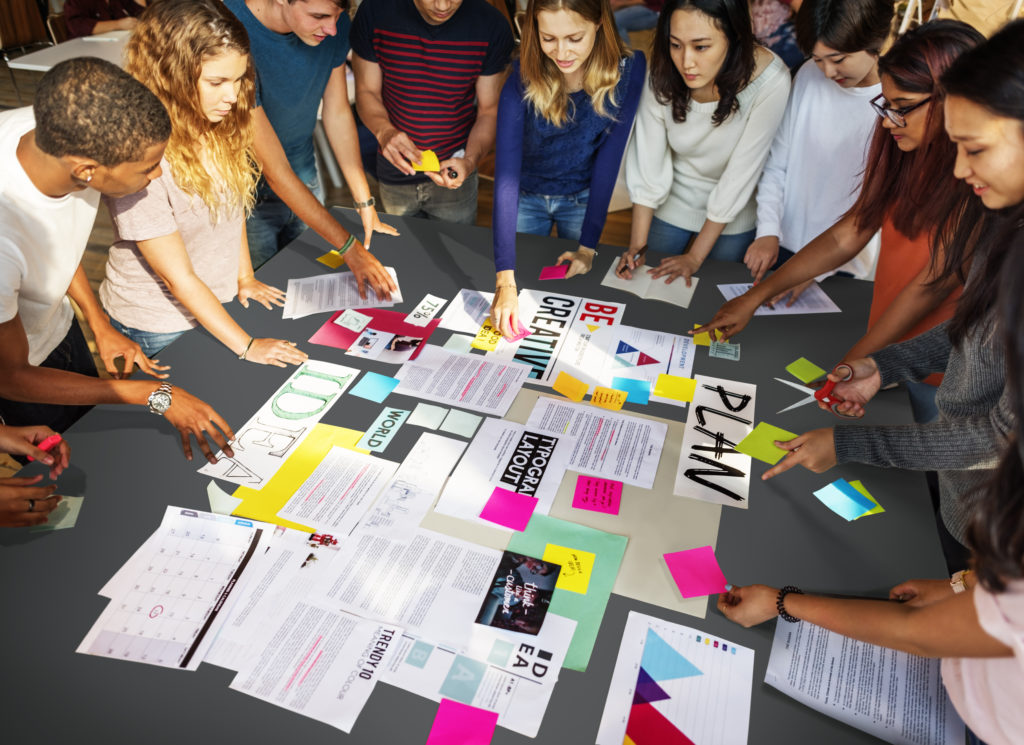By Chia Suan Chong for EtonX
Your students may know all the necessary formulae to solve complex mathematical problems. They may be able to memorise large amounts of information and may even eloquently debate the pros and cons of different political systems. But will these abilities stand them in good stead when they enter the workplace?
Research found that 93% of employers rated soft skills to be just as important, if not more important than hard skills e.g. technical knowledge. Globally, many employers and recruiters lament the lack of soft skills in graduates – skills that are not often addressed in the curriculum but are crucial to performing in the workplace. According to the LinkedIn 2019 Talent Trends report that 89% of talent professionals and hiring managers feel that “bad hires” typically have poor soft skills, while 80% say soft skills are increasingly important to company success.
In graduate level jobs, there are considerable gaps between the level of soft skills these graduates actually possess and the level of soft skills that employers need of their staff. In fact, 87% of employers surveyed (The HR Director 2019 ) said new graduates often lack the wider skills they need to thrive at work. Employers end up spending precious time and money on training courses to develop such skills in their employees.
There is also a difference in the perceived importance of these skills between graduates and employers with students deeming soft skills less important than employers when compared to technical skills (Studies In Higher Education, 2020).
So what are soft skills and why are they so important?
Also known as life skills, core skills, employability skills or 21st century skills, soft skills are skills that are transferable from job to job, industry to industry. In an age where what we teach our students at school might be outdated by the time they graduate, helping our students develop soft skills means that they can confidently work in any setting, interact with anyone, and solve any problems they encounter whilst continually learning and developing professionally.
Here are twelve types of soft skills that our students might need in the workplace:
1. Communication Skills
Being able to get a message across successfully may sound simple, but some of the most common problems in the workplace stem from communication issues. A communication breakdown or misunderstanding may end up costing a company a lot of money and time, and relationships may suffer as a result. If students can develop an understanding of how they as individuals prefer to communicate and how this might differ from the communication styles of others, they can learn to adapt the way they speak to their conversation partner.

2. Interpersonal Skills
In the workplace, relationships with managers, colleagues, suppliers and clients are vital. Good interpersonal skills allow employees to build relationships, negotiate and persuade people, deal with disagreement, and cultivate a more pleasant working environment. Interpersonal skills include social skills, trust building skills, influencing skills and conflict management skills.
3. Intercultural Skills
Many of our students will find themselves working or studying in teams with people who come from a different culture, country or region or who are a different age or have had a very different education. They might have a different set of values and beliefs leading to behaviours that are different from what our students are used to. Good intercultural competence for our students goes beyond the superficial lists of do’s and don’ts seen online, focusing on the ability to explore and understand their own behaviour and practices, and those of their counterparts.
4. Critical Thinking Skills
In an age of fake news and misinformation, it is more crucial than ever that students are able to make observations, question, interpret and evaluate all that they see and read. Critical thinking is also about the ability of students to listen with an open mind and recognise the logic in arguments that they disagree with. Critical thinking skills encourage logical and analytical thinking and enable the individual to reason and draw reasonable conclusions.
5. Decision-Making and Problem-Solving Skills
Alongside critical thinking skills sits students ‘ability to make decisions based on given information and solve problems by being resourceful. The more responsibilities students are given in life, the more they will be expected to handle difficult situations and make sound decisions. We need to help our students to consider the various alternatives objectively and to explain the reasons behind their decisions logically.
6. Creative Thinking Skills
Being creative is not just about producing art or inventing a new product; it is the ability to think outside the box and see things that are not immediately apparent. In a poll by IBM, 60% of CEOs listed creativity as the most important leadership quality for success in business and this comes as no surprise in a world where machines are taking over the more repetitive jobs.

7. Project Management and Organisational Skills
There has been a rise in project-based work both for freelancers and full-time employees, and the skills that can help project teams perform have become more of a necessity than a luxury. Essential project management skills include the ability to schedule, organise, manage tasks, keep track of deliverables, fill out necessary documentation, analyse ongoing performance of the team, and use the necessary online tools or software to manage the project and the team members.
8. Leadership and Teamwork Skills
Closely related to project management is leadership and teamwork. These days, project team members might be working together from the same geographical location or might be collaborating virtually. Collaboration between different individuals can be tricky and a good understanding of team goals and responsibilities can help each member perform in their role. While the different team members might differ widely in their expectations and the way they prefer to contribute to the team, a good leader is one who can adapt their approaches to bring out the best in everyone.
9. Listening Skills
Many of us might appear to be listening but in fact are thinking about what we are going to say when our turn comes. Active listening skills are vital in any relationship, whether with a colleague or a client. Most conversations would simply be a waste of time if we went into them with a closed mind, having decided already what we want to say and what we want to hear.
10. Emotional Intelligence and Empathy
Students need to learn that the way they feel can affect the decisions they make. Uncontrolled anger, emotional outbursts and defensive reactions can lead to rash decisions and damaged relationships. Sensitivity to other people’s feelings and points of view can also help them in their collaborations and future workplace relationships.
11. Resilience and Flexibility
It is human to make mistakes and to fail. But how young people react to failure is what makes the difference. Having the resilience to pick themselves up and try again, and the flexibility to learn from their mistakes and adapt to suit the different circumstances they find themselves in ensures that they keep growing and never stagnate.
12. Self-Awareness
The first step to developing soft skills is learning reflection and self-awareness. Only when our students become aware of how they communicate, how they build rapport, how they make decisions, how they deal with conflict and how they listen, can they start to see areas for improvement and work towards developing and making changes.
This list is by no means exhaustive and some have suggested other useful life skills such as money management skills, interview skills, public speaking skills, etc. Amongst the skills mentioned above, there is some overlap, but there is one thing that all these skills have in common, and that is that they are not subjects of a traditional school curriculum and are not always explicitly addressed in the classroom.
While it might have been more common in the past for teenagers to take up part time jobs and practice skills in the real world of work, many students have not had work experience before graduating, missing out on opportunities for the development of these soft skills. To make matters worse, our education system tends to reward individual achievement, and collaboration is not often seen as necessary for academic achievement.
It is therefore important that schools and educators cultivate a learning environment that acknowledges the importance of such skills and encourages the development of soft skills through awareness and practice both in and out of the classroom. EtonX’s online future skills courses can be taken by your students, alongside your school’s curriculum, to help students to succeed at university, in the workplace and in life. Find out how EtonX can work with your school by clicking here.
